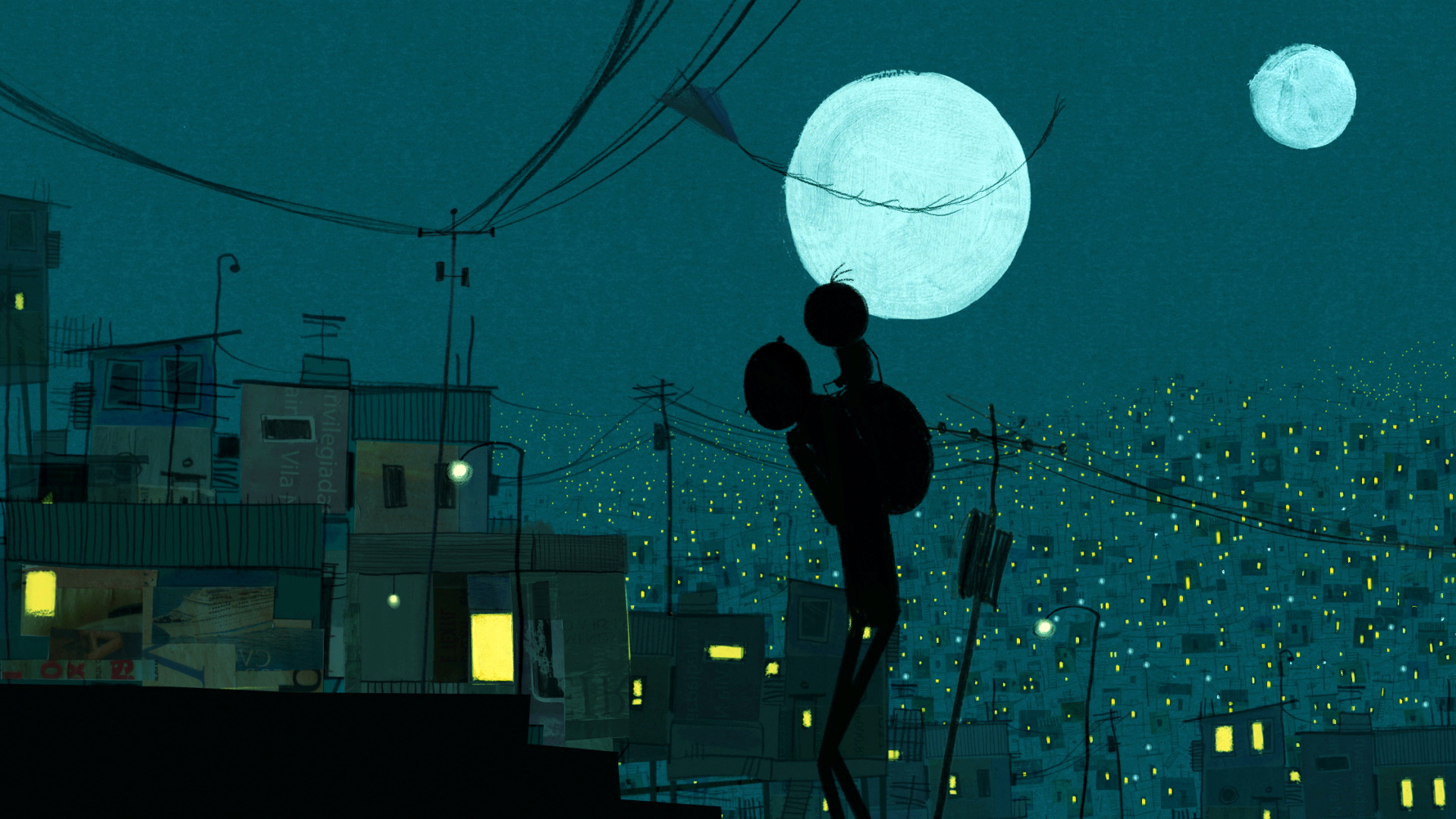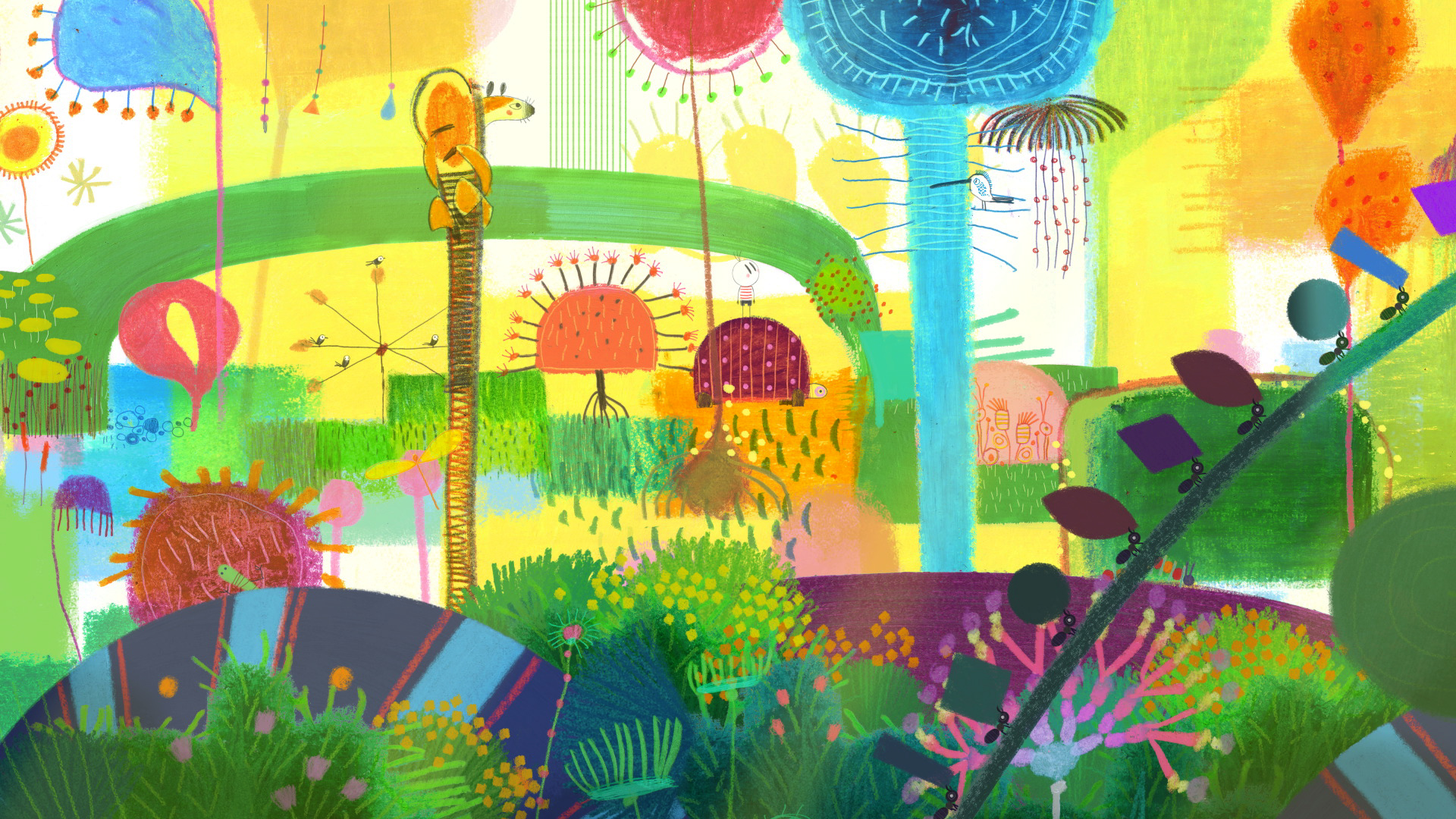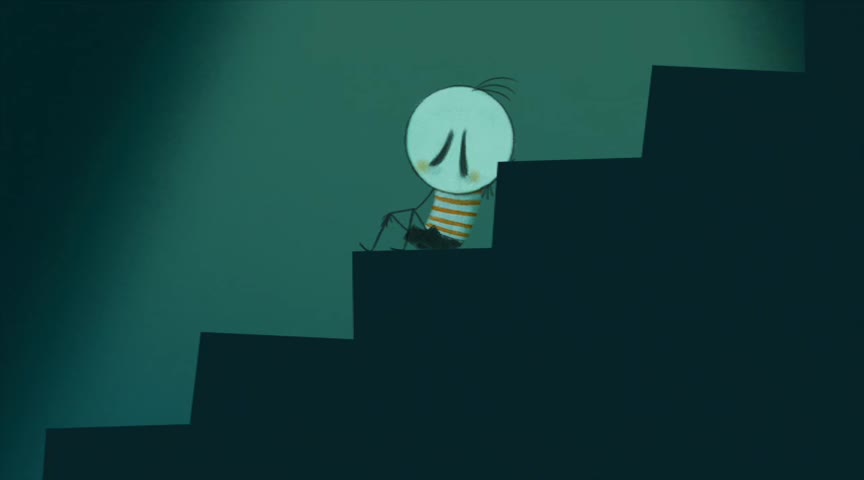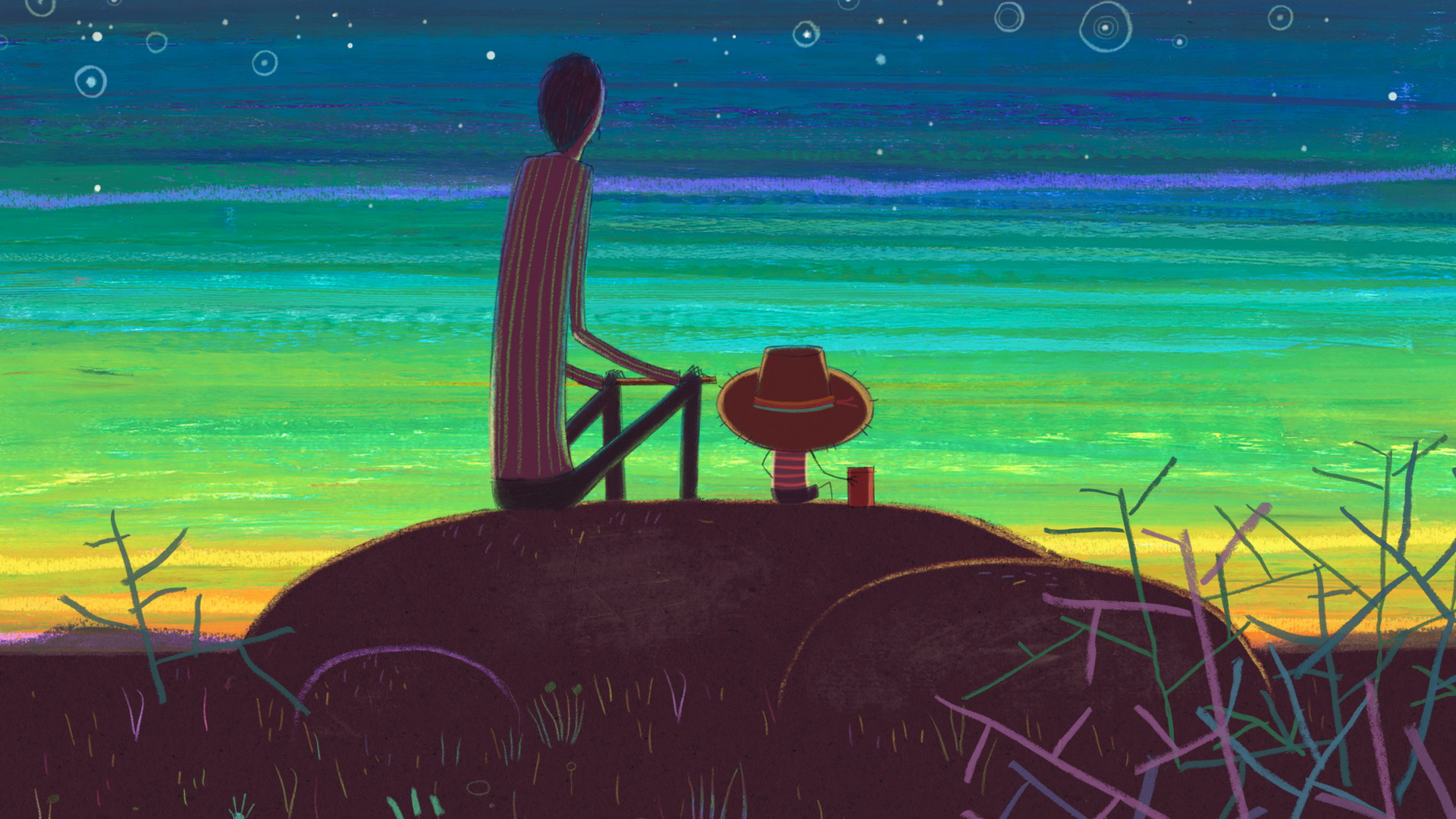Tim here, to spread the Good News about the best animated feature of 2015. Though for everybody in the U.S. outside of New York and Los Angeles, it's not coming until 2016, and anyway it first premiered in 2013. The point being, this weekend marks the Oscar-qualifying release of Boy and the World, an astonishing, crazily inventive, unnervingly thoughtful fable from Brazil and the hands of director/animator Alê Abreu.
It's a wholly idiosyncratic vision of childhood and globalization, and a film with no clear target audience - there's nothing kid-unfriendly here, but I also can't imagine a kid understanding any of what's going on. Nevertheless the self-selecting population of adults willing to watch a cartoon that looks for all the world like a video for pre-schoolers is in for a rare treat.
There's not a word of intelligible dialogue – the handful of human mutterings we hear throughout are a nonsense language made up of writing Portuguese backwards – and the drawings are utterly minimalist, just the roughest sketches of a boy with two thick lines for eyes and no other visible features, though Abreu manages to express deep feeling through this very basic vessel. The crude pantomime that's therefore the film's sole method of communicating with its audience is somehow enough to explore some of the weightiest themes of any film this year, animated or live action, and do it with a delicacy and subtlety that ensures it's never once preachy or obvious. It's a message movie, but that message is woven so carefully into the film's explosively colorful and imaginative visuals that it simply doesn't register.

The boy lives on a farm with his parents, until his father has to go to the city for work. Lonely and sad, the boy follows him, gets lost in the crushing, mechanical urban environment, and ultimately crosses paths with a friendly musician, who keeps an eye on the boy for the rest of his adventures. Throughout, the boy's memories keep flickering in and out, happier and more secure times contrasting with the exciting but terrifying journey into the wide world. Eventually, we're invited to wonder if the whole thing is one long memory, a longing for a simpler world with more kindness. It's impossible to fully understand where every scene takes place and what it means until the very end, and even then it makes sense intuitively more than intellectually.
Boy and the World is an extraordinary 80 minute study in contrasts. Stylistically, it's a bold and charming dive into kaleidoscopic colors and shapes of the most innocent sort: it resembles what would come from an ingenious child being given a box of colored pencils and untold yards of blank white paper to fill.

The beautiful score by Ruben Feffer & Gustavo Kurlat draws from a range of Brazilian and international sources to produce playful and maddeningly catchy world music, particularly the dance-march hybrid song "Airgela", the film's main theme. Unexpectedly, the whole thing turns out to be something of a musical, with the rhythms of the score and the sweet-sounding orchestrations guiding our feelings.
Set against this dazzlingly childish style is a shockingly mordant narrative of how human lives and the environment are crushed by the unyielding march of technological development. The film turns overtly didactic only once, near the end, in an intrusion of live-action documentary footage that has exactly the right disruptive effect. This burst of unambiguous anger and thematic severity is, however, almost unnecessary in light of how effectively Boy and the World has already, by this point, implied the tension between the boy's guileless perspective on the city and the angular shapes and jarring colors and occasional ugliness of the things depicted through the simple aesthetic.

It's important to stress that the vigor of the film's social message and its unmistakable anger at a world going in the wrong direction aren't suffocating in any way. The sweetness of the visuals is always more enchanting than not, even when it's being used in a heavily ironic fashion. It is a serious film but significantly, not a hopeless one; the last scenes are quite optimistic for a film about the crushing effect of urban capitalism on humans and the planet, in fact. And that optimism is pervasive throughout the movie, much more than despair. This is a film about seeing life through a child's perspective in terms of its emotional impact as much as its imagery and plot, and it provides a singularly good lesson for all the grown-ups fortunate enough to stumble upon it.
Oscar prospects: Nathaniel is bullish, but I fear it's a longshot. The invaluable distributor GKIDS is good about forcing their titles into the awards conversation, but the same four American films + Shaun the Sheep keep cropping up in the precursors, and that's assuming that the Academy isn't cut off at four or even three nominees. Don't let that stop you from tracking it down – this is a truly special movie.
